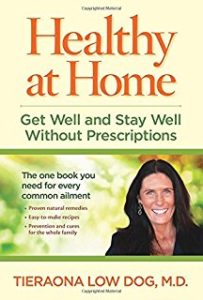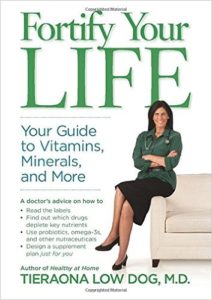Making Sense of Health Information
Flip-flops in the news are commonplace. There will always be another headline, another new miracle pill offered. Physicians practice what they know. When it comes to counseling a patient on nutrition or the use of herbal medicines or dietary supplements, they are at a profound disadvantage. Medical schools and residency programs are trying to step up their teaching in these areas. Many Americans, especially those over the age of 50, take multiple medications. A common combination is taking a PPI for their acid reflux/heartburn, metformin for their diabetes, and an ACE inhibitor for their blood pressure. Long-term use of PPIs also depletes the body of magnesium, calcium, iron and vitamin B12. The longer you take metformin, the greater the chance you will become depleted in vitamin B12. Finally, ACE inhibitors deplete both zinc and magnesium. Yet virtually no one is being counseled by their physician about the need to increase their dietary intake of foods rich in these nutrients or to take supplements to prevent deficiencies. You must be your own health advocate.
Breaking news!
What to make of that story on TV.
Q1: Do the findings contradict other studies, or do other studies support these findings?
Studies from independent research teams are needed to confirm findings. This is why scientists publish their research methods and statistical analyses in peer-reviewed journals. The findings of a single study seldom prove or disprove anything.
Q2: Does the story or health claim pass the common-sense test?
Listen to your instincts that says, “that can’t be right.” Be skeptical, listen to your gut, and gather more information before drawing any firm conclusions. If you hear promises that a supplement will cure cancer, lupus, or another complex condition, feel free to roll your eyes. The supplement might help with the condition, but if it could actually cure it, you would have heard about it on the nightly news, or from the CDS or the National Institutes of Health. Remember, science is cumulative; it takes time to figure out what works and what doesn’t.
Q3: Was the study a meta-analysis of existing studies?
A meta-analysis is a statistical technique for looking at data from numerous studies. How many of the studies were sponsored by a drug or supplement company? How many of the studies were randomized and double-blinded? Randomized studies assign participants to the placebo group or the supplement/drug group randomly, to prevent bias. In double-blind studies, neither the patients nor the researchers know who is taking the supplement/drug and who is taking the placebo. While meta-analyses can be helpful for making general recommendations about a treatment, they can fall short when it comes down to what is best for an individual.
Q4: Was it a longitudinal study?
They observe large numbers of people over a long period of time, and they are often very valuable for figuring out what you can do to support your health through lifestyle, diet, and nutritional supplements. There is a real risk of bias in these questionnaires. Many people don’t want to put down that they drink four glasses of wine every day or eat doughnuts for breakfast. While these studies are valuable, one has to use some discretion when interpreting the ones that attempt to correlate self-reported dietary histories to health outcomes.
Q5: Are there reputable websites for dietary supplement information?
The website of the Centers for Disease Control, specifically its section that includes the results of the National Health and Nutrition Examination Surveys (NHANES) (cdc.gov/nchs/nhanes.htm), a program that assesses the health and nutritional status of 5,000 adults and children across the U.S. using both interviews and physical examinations. The CDC’s Nutrition Report collects blood and urine samples to determine the adequacy of specific nutrient intake for the U.S. population (cdc.gov/nutritionreport). The United States Department of Agriculture Nutrient Database lists the nutrients for more than 8,000 foods (ndb.nal.usda.gov). The National Institutes of Health Office of Dietary Supplements is where you can look up authoritative information on vitamins, minerals, and some nutraceuticals and botanicals (ods.od.nih.gov). The Linus Pauling Institute at Oregon State University (lpi.oregonstate.edu) gives you scientifically accurate information about vitamins, minerals, and other nutrients. You can look things up by subject or by specific disease. Ie, “High Blood Pressure,” will pull up the links for calcium, coenzyme Q10, magnesium, potassium, riboflavin, sodium chloride, and vitamins C and D. This site is regularly updated and is highly reliable.
Q6: What if you need medications?
They can be lifesaving. It’s a silly myth that doctors are all in the pocket of the pharmaceutical industry and just want to “push pills.” There should be greater referral and collaboration with dietitians and nutritionists to help patients figure out what type of nutritional program is best for them. Doctors are getting additional training in “integrative medicine” and learning when and how to refer to an acupuncturist, massage therapist, or dietitian.
Drug-Nutrient Depletions and Interactions
America is a pill-popping nation. More than half of Americans take at least one prescription per day and 20 percent take three or more. That number will only grow as more and more of us are battling diabetes, cancer, and heart, respiratory, and autoimmune diseases. It’s almost impossible for you to become depleted in one nutrient without the deficiency affecting other nutrients and bodily processes. Focus on the foundation of nutrition, know your body, and partner with health-care professionals rather than looking to them for every answer. Taking St. John’s wort for depression is no better than taking Zoloft if the problem is B6 or B12 deficiency. Taking ginseng or rhodiola for energy won’t help if you don’t have enough iron.
Dr. Low Dog has published 45 peer-reviewed articles, written 22 chapters for medical textbooks, and published 5 books, including National Geographic’s Life Is Your Best Medicine and Healthy at Home. She co-authored the National Geographic Guide to Medicinal Herbs.



Next week: We will take one last look at Dr. Low Dog’s take on nutraceuticals. They are not vitamins or minerals; some are essential and some are not, but all of them can play a role in improving and maintaining your health.



